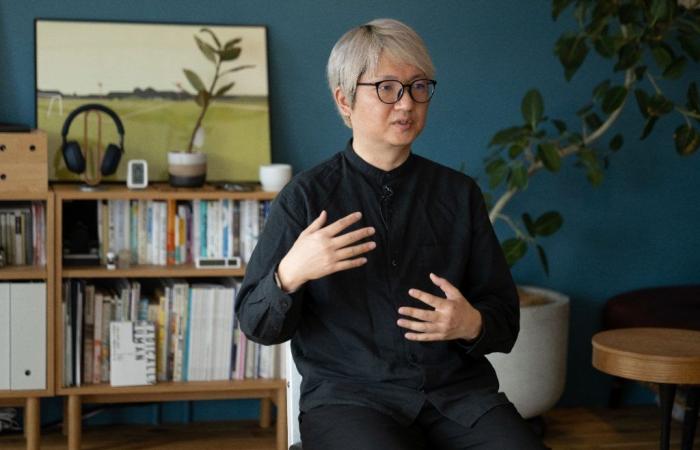Masaki Kubota, father of two children, on May 7, 2024 in Tokyo
PHOTO AFP / Yuichi YAMAZAKI
It was their first reunion since Mr. Kubota’s wife had abruptly cut ties with him a year earlier, taking their two children.
Very common in Japan, this type of total removal of children when a couple separates is expected to become rarer with the entry into force of a new law by 2026.
Adopted in May, this text will allow divorced couples to choose shared custody or not, an option that did not exist until now: after a separation, parental authority is assigned to a single party, the mother in most cases. case.
International pressure has been mounting for years on Japan to reform its family law. Cases concerning dual national children have been highly publicized, notably that of Frenchman Vincent Fichot.
During the Tokyo Olympics in 2021, Mr. Fichot led a hunger strike in the Japanese capital to try to obtain the right to see his two boys taken away by their Japanese mother three years earlier. But all his efforts have been in vain so far.
Mr. Kubota managed to obtain in court the right to see his two children again, but not more than one or two hours every three months: “It’s hard. I’m sorry not to be able to be part of their life and to see them grow.
While his divorce has not yet been finalized, he hopes the new law will allow him to be involved in making “important” decisions for his children in the future.
But this reform is far from unanimous, particularly against the backdrop of deep economic inequalities between men and women in Japan, where the gender wage gap is the highest among the G7 countries (21.3% in 2022). .
In this context, many fear that women will remain under the control of their former husbands, even if the law will exclude joint custody in cases of domestic violence or child abuse recognized by the courts.
“Mothers and children who have escaped violence risk being drawn back into this abusive relationship through joint custody, because the power dynamic does not change easily, even after divorce,” believes Shiho Tanaka.
This 50-year-old divorced woman, mother of two children, says that her former husband used his financial power within their relationship to treat her “like a slave”.
As long as deep gender inequalities remain in place in Japan, “we will not be prepared at all to even consider shared custody,” says Ms. Tanaka, who now heads a support group for single mothers.
– State neglect –
“In Japan, most women work in non-regular jobs, as cheap labor, especially after marriage and motherhood”, and it is therefore “extremely difficult for them to be financially independent”, recalls Yuki Senda, a gender sociologist at Musashi University in Tokyo.
This researcher and other experts also highlight the low propensity of the Japanese state to intervene in family affairs, which can exacerbate domestic violence and aggravate the precariousness of single-parent families.
Thus, measures to enforce the payment of alimony are limited while most divorces are settled without going before a judge.
It’s not surprising that a parent deprived of the right to see their children is reluctant to pay sufficient child support, thinks Mr. Kubota: “Parents feel less responsible if they are deprived of their parental authority.”
And some supporters of shared custody consider the reform too lukewarm, in particular because parental kidnappings, tolerated in Japan, will go unpunished.






